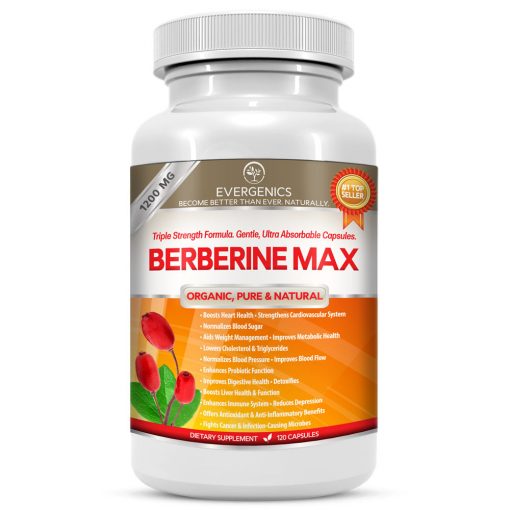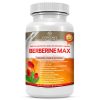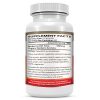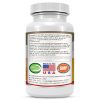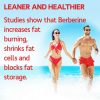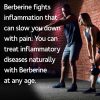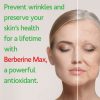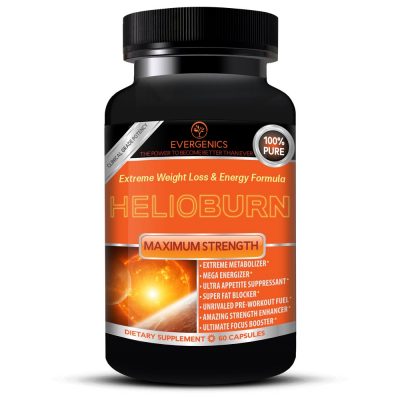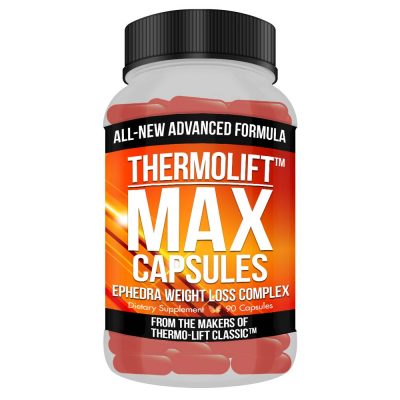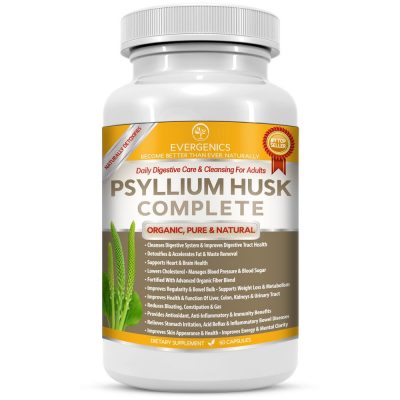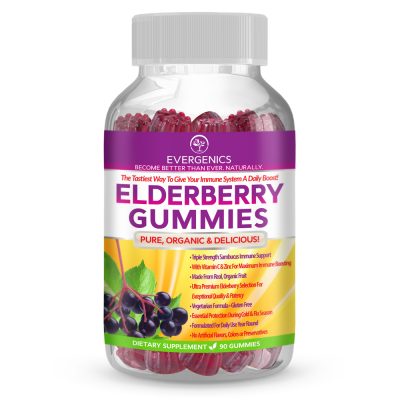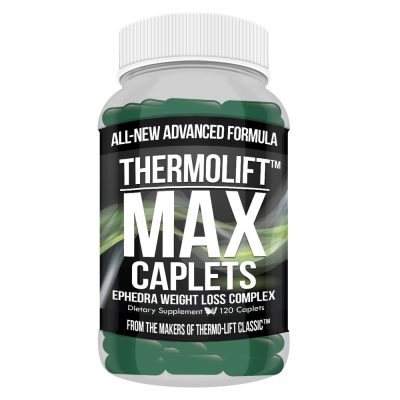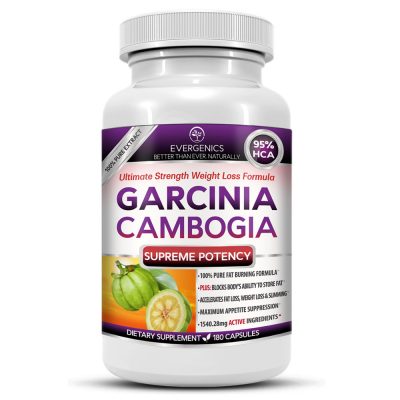Berberine Primary Health Benefits:
Boosts Heart Health • Strengthens Immune System • Normalizes Blood Sugar • Strengthens Cardiovascular System • Aids Weight Management • Improves Metabolic Health • Lowers Cholesterol & Triglycerides • Normalizes Blood Pressure • Improves Blood Flow • Enhances Probiotic Function • Improves Digestive Health • Detoxifies • Boosts Liver Health & Function • Offers Antioxidant and Anti-Inflammatory Benefits • Fights Cancer • Provides Protection from Infectious Diseases • Reduces Depression
According To Research: How Berberine Works
Offers Protection from Heart Disease: Lowers Cholesterol and Other Markers
Heart disease can occur when excess levels of cholesterol build up in the blood. Atherosclerosis, a form of heart disease caused by high cholesterol, is a leading cause of heart attacks and strokes. A review of eleven studies, conducted with 874 subjects, in Planta Medica by Thieme Medical Publishers concludes that berberine supplementation lowers total cholesterol, LDL cholesterol and blood triglycerides.1
Elevated levels of apolipoprotein B (ApoB) are another indication of increased risk for cardiovascular disease according to the Journal of the American Heart Association.2 One study involving 40 subjects over 4 weeks shows that berberine supplementation can decrease ApoB by 15%.3
Congestive Heart Failure Patients Benefit From Berberine
Researchers treated 156 congestive heart failure patients with conventional therapy; approximately half of that group was also given berberine treatment daily. The berberine group recorded significant improvements in all areas tested. Increases in left ventricular ejection fraction (a measure of heart function), exercise capacity and quality of life compared to the control group were recorded. After long-term follow-up there was a notable decrease in mortality in the berberine group. No side effects were reported from the daily berberine supplementation. This study was published in the American Journal of Cardiology.4
Berberine Lowers and Normalizes Blood Sugar Helping To Reverse Diabetes
Diabetes is a metabolic disease linked to persistent high blood sugar. According to the World Health Organization, diabetes—a major cause of blindness, obesity, amputation, heart attack, stroke and death—is a growing health problem worldwide affecting more than 400 million people.
Recent research shows that berberine treatment can reduce blood sugar and reverse type 2 diabetes and its symptoms.5 6 7 8
In a study of 36 adults published in the medical journal, Metabolism: Clinical and Experimental, berberine was found to be as effective as the drug metformin (brand name Glucophage) at reducing blood glucose levels.9
Research conducted on 116 patients with type 2 diabetes and dyslipidemia (a condition of abnormal amounts of cholesterol, triglycerides or fat phospholipids in the blood) showed a reduction in fasting and postmeal blood sugar levels by 20% after supplementation with berberine. This study, published in the Journal of Clinical Endocrinology and Metabolism, declared berberine “safe and effective” in the treatment of type 2 diabetes and dyslipidemia.10
Helps Drop Pounds, Fat and Inches
In a weight loss study published in Phytomedicine, human patients taking berberine daily for twelve weeks lost an average of five pounds and 3.6% body fat. In this research, treatment with berberine reduced blood levels of triglycerides by 23% and cholesterol by 12.2%.11 At the conclusion of this study, extensive blood, heart, kidney and liver tests were conducted; no adverse side effects were found as a result of berberine supplementation.
Evidence-Based Complementary and Alternative Medicine published a study in which both male and female subjects took 1200mg of berberine daily for three months. Berberine caused weight loss and slimming by influencing the hormones insulin, leptin and adiponectin. Subjects decreased their body mass index measurements from 31.5 to 27.4. Decreased levels of visceral fat, LDL cholesterol and triglycerides were also observed.12
There are even more scientific findings for those looking for a natural way to lose weight, fat and inches with a dietary supplement like berberine. Recent research shows that berberine fights fat at the cellular level by decreasing the size and proliferation of fat cells.13 14 Researchers, Zhang Z. et al., say berberine is a fat-burning catalyst that helps the body burn more energy at rest: it activates brown adipose tissue which promotes thermogenesis and increases the use of stored fat for energy requirements.15
Berberine Offers Similar Therapeutic Benefits To Exercise And Dieting
Whether it is a 20 minute hike, hour-long gym workout, 30-lap swim or citywide jog, exercise and diet restriction is known to boost metabolism, lower cholesterol, decrease excess weight, normalize blood sugar and improve other markers.
But what if the same can be accomplished without the exercise and dieting but by simply taking berberine? It’s possible according to research published by the Natural Medicine Journal.16
Berberine alone may offer the same therapeutic benefits of exercise and diet restriction by activating an enzyme called AMPK (adenosine monophosphate-activated protein kinase). AMPK plays a vital role in turning human metabolic function on or off. When activated AMPK helps keep lipid, glucose and energy at healthy levels, and it boosts metabolism. When AMPK is deactivated the opposite occurs: those markers go towards unhealthy levels similar to those of a person that overeats and lives a sedentary lifestyle.
Excerise and dieting activate AMPK–so does berberine. What if it is not, directly, the pumping of the legs, flexing of the arms, restricting of the caloric intake and elevating of the heart rate that moves cholesterol, triglycerides, sugar and body weight to healthier levels? It might be that AMPK activation is causing the improvements in those health factors, and you can get the same benefits, without the exercise and diet, by supplementing with berberine.17 Researchers say that focusing on the use of therapies and agents, like berberine, to activate AMPK may be the key to avoiding conditions like hyperglycemia, high blood pressure and hyperlipidemia that cause obesity, diabetes and heart disease.18
Berberine Fights Cancer
Clinical studies have shown that berberine can stop and destroy numerous types of cancer in many areas of the body.
• Breast19
• Colon20
• Liver21 22
• Lung23
Fights Premature Aging and Disease by Boosting Antioxidants
One of the main culprits of premature aging—such as deep wrinkles, hair loss, aching, fatigue, low energy—is cellular damage caused by free radicals, the unstable, potentially deadly molecules that under normal conditions are kept in check by antioxidants. When free radicals overpower your body’s antioxidants causing excessive oxidation, a condition called oxidative stress occurs. Oxidative stress can be caused by air pollution, cigarette smoke, radiation, pesticides, cleaners, alcohol consumption, excessive exercise, overeating and poor diet. More than 60 diseases and serious health problems including diabetes, heart disease, Parkinson’s disease, Alzheimer’s disease, cancer, atherosclerosis, cataracts and premature death are associated with the cellular damage caused by oxidation. Oxidation and free radical damage cannot be avoided, but you can strengthen your body’s defense with healthy sources of dietary antioxidants.
The medical use of berberine as an antioxidant therapy has been reported in the International Journal of Endocrinology as a treatment for: “…diabetic cardiomyopathy due to its antioxidant and anti-inflammatory activities.24
Many examinations using 2,2-diphenyl 1-picrylhydrazyl radical scavenging, nitric oxide scavenging, lipid peroxidation, superoxide scavenging, iron chelating activity and 2,2-azino bis(3-ethylbenzothiazoline-6-sulfonate) radical scavenging methods have shown the potency for berberine as an antioxidant therapy.25
Berberine Keeps Inflammation-Caused Pain And Disease Away
Inflammation is a normal response that happens at the site of an injury or infection as the body is trying to heal; typically redness, swelling, heat or pain comes but goes away after the area heals.
However, chronic inflammation is a whole different story. Hyper-action by the body’s inflammatory processes damages healthy cells, blood vessels, organs and tissues. 3 out of 5 people26 are affected by—many times fatal—chronic or unhealthy inflammatory conditions such as:26 27
• Heart disease
• Rheumatoid arthritis
• Chronic Obstructive Pulmonary Disease (COPD)
• Obesity
• Cancer
• Alzheimer’s disease
• Parkinson’s disease
• Asthma
The good news is there are healthy dietary solutions to help combat chronic inflammation, and berberine is probably the most potent medicinal ingredient we don’t hear enough about.
Berberine has demonstrated potent anti-inflammatory effectiveness in studies both in vitro and in vivo.28
Studies have shown that berberine can decrease inflammation in many vital areas:
• Liver291ncbi.nlm.nih.gov
• Pancreas30
• Lung31
• Skeletal muscle32
• Testicle33
Berberine Fights Infectious Disease To Keep You Alive And Well
Last season influenza killed 180 children, and approximately 80,000 people in total—the highest rate in 30 years—died of the flu according to the CDC. Flu, pneumonia, diarrheal disease, chronic obstructive pulmonary disease (COPD), malaria and tuberculosis are among the deadliest diseases caused by infection. Infectious diseases are caused by microorganisms, often labeled germs, that fall into four main groups: bacteria, viruses, fungi and protozoa.
Disease-causing microorganisms are lurking and spreading almost everywhere you look:
→ On inanimate objects like doorknobs, countertops, bus seats, faucets and kitchen tables
→ From handshakes, touches, coughs and kisses
→ From bites by bugs, pets and animals
→ In contaminated foods like under-cooked meats spreading E.coli
Strengthening Your Defenses: Berberine Fights And Kills Infectious Microogranisms
Lab results published in Bioorganic and Medicinal Chemistry showed that a berberine formula was more effective than the drug oseltamivir (brand name Tamiflu) at inhibiting strains of the influenza virus.34 In research published by International Immunopharmacology, berberine was successful at blocking the growth of H1N1 influenza A strains. Chinese research also found berberine to inhibit the influenza virus both in vitro and in vivo.35
For decades, both the Alternative Medicine Review and Science China have recognized the antibacterial properties of berberine in the treatment of bacterial diarrhea. Diarrhea that lasts for more than several days can be an indication of serious infection or inflammatory bowel disease.36 37.
Research has shown berberine to be effective at fighting the most prevalent human fungal pathogen, Candida albicans.38 39 40Candida infections can take place in the mouth and throat (thrush) or vagina (yeast infection). More serious, invasive candidiasis can affect the heart, brain, eyes and other vital parts of the body. Candida fungus is the most common cause of urinary tract infection.
Most MSRA Infections Affect Hospital Visitors. Berberine May Help Keep You Well.
20,000 Americans, including many children, die each year from MRSA infection.41 According to the Mayo Clinic, most MRSA (Methicillin-resistant Staphylococcus aureus) infections affect people who have been in hospitals and other health care facilities.42 MRSA infection is caused by a type of staph bacteria that’s become resistant to many antibiotics. It is estimated that 90,000 suffer from invasive MSRA infection. Anyone can get MRSA. It can cause skin and lung (pneumonia) infections, and if not treated MRSA can be fatal.
Tests have shown that berberine may be effective at stopping MRSA. In research published in the Journal of Medicinal Food, berberine exhibited antimicrobial activity against all tested strains of MRSA. In this study MRSA adhesion and intracellular invasion were substantially decreased in the group treated with berberine compared to the control group. Results of this testing suggest that berberine may also “restore the effectiveness of beta-lactam antibiotics against MRSA.”43
Protects Against Fatty Liver
Fatty liver is a disorder that occurs when excess fat builds up in the liver. It is caused by alcohol or other factors including obesity, diabetes and hyperlipidemia. Symptoms include weakness, confusion, jaundice and fatigue. If fatty liver disorder is not controlled, cirrhosis can occur leading to liver cancer, infection, toxic build-up and/or high blood pressure.
Research by J. Brusq et al. says that berberine improves liver health in two ways: by reducing fat storage in the liver and inhibiting lipid synthesis in human hepatocytes (liver cells). These studies are found in the Journal Of Lipid Research.44
In a study published in the American Journal of Physiology, berberine was found to decrease the severity of fatty liver disease by reducing the weight of the liver and its triglyceride and cholesterol contents.45
Berberine Promotes Healthier Levels of Gut Bacteria
According to Dr. Susan Blum, assistant clinical professor at the Icahn School of Medicine at Mt. Sinai, people wanting to avoid the effects of bad gut flora, like weight gain, gas, bloating, fatigue and autoimmune disease, should consider “a gut-cleansing program using herbs like berberine.” Studies support the claims of a rise in body fat caused by bad gut bacteria. Berberine keeps these harmful intestinal bacteria in check resulting in an inhibition of the degradation of dietary polysaccharides and a decrease in the creation of new fat.46
References
1. ncbi.nlm.nih.gov
2. ahajournals.org
3. https://pubmed.ncbi.nlm.nih.gov/17341006
4. https://pubmed.ncbi.nlm.nih.gov/12860219
5. https://www.ncbi.nlm.nih.gov/pubmed/25607236
6. www.draxe.com
7. pubmed.ncbi.nlm.nih.gov
8. https://www.ncbi.nlm.nih.gov/pubmed/26132858
9. https://www.ncbi.nlm.nih.gov/pubmed/18442638
10. https://www.ncbi.nlm.nih.gov/pubmed/18397984
11. https://www.sciencedirect.com/science/article/abs/pii/S0944711312001870
12. https://www.ncbi.nlm.nih.gov/pmc/articles/PMC3310165
13. https://www.ncbi.nlm.nih.gov/pubmed/12812656
14. https://www.ncbi.nlm.nih.gov/pubmed/17202835
15. https://www.ncbi.nlm.nih.gov/pubmed/25423280
16. https://www.naturalmedicinejournal.com/journal/clinical-applications-berberine
17. https://www.naturalmedicinejournal.com/journal/clinical-applications-berberine
18. National Library of Medicine
19. https://pubmed.ncbi.nlm.nih.gov/20691179
20. https://www.ncbi.nlm.nih.gov/pubmed/17673978
21. https://pubmed.ncbi.nlm.nih.gov/19724899
22. https://www.ncbi.nlm.nih.gov/pubmed/20830746
23. www.ncbi.nlm.nih.gov/pubmed/21061266
24. https://www.ncbi.nlm.nih.gov/pubmed/25861268
25. https://www.jstage.jst.go.jp/article/bpb/29/9/29_9_1906/_article
26. https://www.ncbi.nlm.nih.gov/books/NBK493173
27. Dr. Mercola
28. https://www.ncbi.nlm.nih.gov/pubmed/17202835
29. https://www.ncbi.nlm.nih.gov/pubmed/21110076
30. Pharmaceutical Biology
31. Pharm. Research
32. diabetesjournals.org
33. hindawi.com/journals/aaa
34. https://www.ncbi.nlm.nih.gov/pubmed/28958846
35. Chinese Journal of Int. Medicine
36. www.ncbi.nlm.nih.gov/pubmed/10767672
37. https://www.ncbi.nlm.nih.gov/pubmed/24174332
38. cell.com
39. https://journals.plos.org/plosone/article?id=10.1371/journal.pone.0104554#s3
40. https://www.ncbi.nlm.nih.gov/pmc/articles/PMC4879420
41. http://infectionprevention.uchicago.edu/research/mrsa.html
42. www.mayoclinic.org/diseases-conditions/mrsa/symptoms-causes/syc-20375336
43. www.ncbi.nlm.nih.gov/pubmed/16379555
44. www.ncbi.nlm.nih.gov/pubmed/16508037
45. www.ncbi.nlm.nih.gov/pubmed/19176354
46. https://journals.plos.org/plosone/article?id=10.1371/journal.pone.0024520
References
| ↑1 | ncbi.nlm.nih.gov |
|---|

